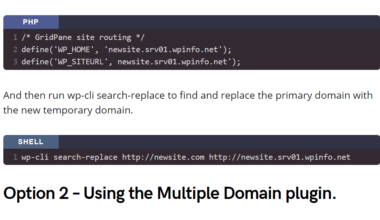Content Error or Suggest an Edit
Notice a grammatical error or technical inaccuracy? Let us know; we will give you credit!
Draft Warning
You’ve reached a draft 🤷♂️ and unfortunately, it’s a work in progress.
Question: Any tips to help scale WooCommerce?
This question comes from Facebook!

Methodology
We’re going to go from the foundation to the roof on this question. Starting with your resources and ending with CDN’s or maybe something else 🤣
Web Hosting Types and Server Resources
Advice / Tip
For the most part, I’ve been using User-Agent’s here instead. Granted, hackers could bypass this by faking their user agents. We’re more concerned about automated attacks at this point, and until hackers start manufacturing User Agents, it’s not a concern.
Unfortunately, Blogvault and WP Umbrella don’t set a custom User-Agent header, so you must use their IPs. Always reference Blogvault and WP Umbrella. Add any IPs you want to allow past the WAF to this list.
If you recall, when you first started with your WooCommerce store, you had to choose a hosting plan. Typically most people start off small, using Shared Hosting. This is a type of web hosting provided and is a majority of what smaller websites are using online.
If you’re looking to scale your WooCommerce site, the web hosting you choose and the related resources are important. Learn more.
Server Resources
Now that you understand the types of web hosting available, let’s look at what is going to help improve WooCommerce.
Disk 💾
No matter what type of hosting your choose, the storage is going to have some effect in how WooCommerce performs. Granted, you want to ensure you have enough storage, but you also want to ensure fast storage. This is important for your database if it’s on the same server as your WooCommerce site (more about this later).
SSD Storage is good, but NVMe is great. Either one will do the job, but I always just go with NVMe.
CPU 🎢
High Frequency Processors all day! 🔥 PHP is a beast and will use as much CPU as it needs to get the job done. Since PHP is not multithreaded, each request that comes in is assigned to a single thread or CPU. So you’ll want good single-core performance, versus lots of cores that are slow.
WordPress and WooCommerce also share some of the blame when it comes to being efficient, they do have their own issues when it comes to how performant their codebase is.
Typically I suggest companies like Vultr or Upcloud that have the high frequency servers.
Memory 💻
Always have enough memory for your Operating System Services (2GB), your PHP Workers and Webserver (2-4GB) and your MySQL Database (2-18GB).
Wow, that sizing for MySQL is huge! Why is that? Well, you want your entire MySQL Database to sit in memory. You don’t want any requests to the database going to your disk, even though it’s fast. Memory is faster.




